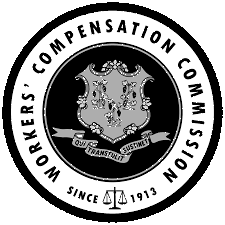Sec. 31-284-16
Termination of self-insured status.
Workers' Compensation Administrative Regulation regarding
Self-Insurance Certification
Sec. 31-284-16. Termination of self-insured status.
(a) An employer may voluntarily terminate its self-insurance privileges of any or all of its operations by writing to the Chairman or his designee and providing the reason for the termination, the date and time of the intended termination, the carrier name, policy number and effective date of the full coverage insurer assuming the risk after the self-insurance termination, and full identification of the purchaser of any self-insured operations sold, including the date and time the sale is effective.
(b) The Chairman or his designee shall be provided with thirty (30) days advance written notice of an employer’s intent to terminate its self-insurance, but no later than ten (10) days after a change in ownership in the case of a sale.
(c) All former self-insurers are responsible for any and all workers’ compensation liabilities incurred during the self-insurance period. The incurred liabilities of a subsidiary or division are not subject to transfer to another entity through a sale unless the liabilities are to be fully covered under a workers’ compensation insurance policy or a qualified self-insurance program. Such transfer shall have prior written approval from the Chairman or his designee.
(d) Whenever an employer exits the self-insurance program, the Chairman or his designee may require such employer to provide all available information regarding incurred liabilities.
(e) An employer whose self-insurance certification has been terminated or revoked shall continue to provide competent administration of incurred claims. If it is determined by the Chairman or his designee that the claims are not being competently administered or reported, the Chairman or his designee may notify the employer of the problem and require it to be addressed within sixty (60) days. If the problem is not addressed within sixty (60) days, the Chairman or his designee may require the employer to select a new administrator. If the employer fails to enter into an agreement with a new administrator in a timely manner the Chairman or his designee may designate a new claims administrator and the costs shall be borne by the employer.
(f) The Chairman or his designee may seek to enjoin a currently or previously self-insured employer from liquidating its assets, selling its tangible Connecticut property, or moving its operations out of Connecticut before it has received approval from the Chairman or his designee of an acceptable exit plan to provide for the continued payment of its outstanding workers’ compensation liabilities.
Effective October 1, 1996
NOTE: See also Administrative Regulation Section 31-279-1, Claims Administration

